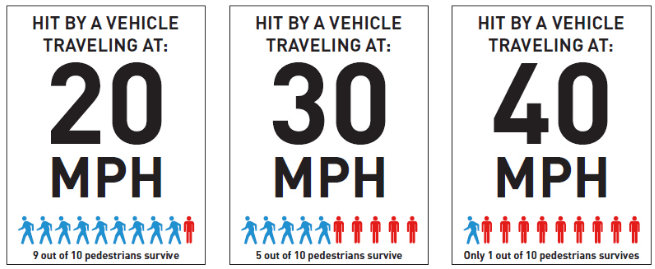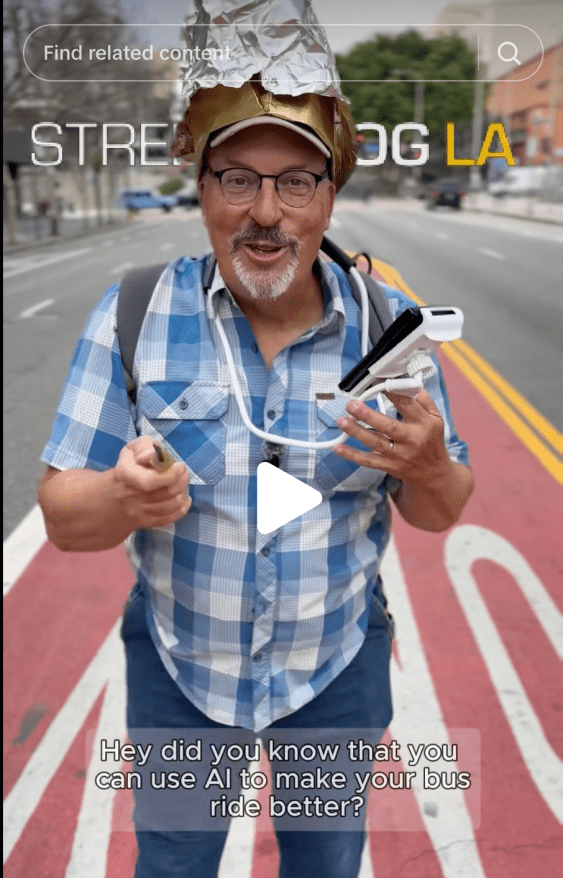Last week, Assemblymember David Chiu, San Francisco Mayor Ed Lee, San Jose Mayor Sam Liccardo, representatives from the San Francisco Municipal Transportation Agency (SFMTA), traffic injury victims, surviving family members, and others met at Zuckerberg San Francisco Hospital trauma center to announce the introduction of Assembly Bill 342, also known as the Safe Streets Act of 2017. If passed, it will allow for an "Automated Speed Enforcement (ASE) Pilot Program to Reduce Speeding and Save Lives." More from Chiu's official announcement:
ASE is a proven safety technique that uses cameras with vehicle speed sensors to snap photos of license plates of motor vehicles traveling above a defined threshold. It is currently being used in 142 communities across the country to deter speeding and improve safety for all road users, with results including:
- A reduction in drivers traveling more than 10 mph over the speed limit; and
- A reduction in citations issued as drivers change their dangerous driving behaviors; and
- Most significantly, a reduction in crashes that result in serious injury or death.
"Speed kills. Sadly, we know too well that this is true in San Francisco and throughout California," said Chiu in the prepared release. "We know how to fix this crisis on our streets. It is time we take this important step to put an end to these senseless traffic fatalities."
"Excessive speeding is often the difference between a minor collision and a fatality...Too often drivers treat speed limits as suggestions, not as actual limits that are critical to keeping our streets safe for drivers, bicyclists, and pedestrians," said California State Senator Scott Wiener, also in the release. "ASE will help our goals of making sure that vehicles travel at safe speeds so that we can have safe, livable streets in our cities and our neighborhoods."
As Streetsblog reported previously, the technology has proven itself overseas and in American cities such as Portland, OR. In Washington, D.C., traffic deaths fell by more than 50 percent when the city started rolling out ASE.
Nobody would deny that there aren't enough cops on speed patrol; as a result, motorists know they can almost always get away with speeding. But ASE cameras can be placed all over. In cities where motorists know speeding results in an expensive citation almost every time, they stop doing it. So ASE should be a no-brainer. But in the past, it's been politically impossible to get this kind of legislation in motion. Opponents cite privacy concerns. Others worry that the ticket ends up going to the registered owner of the car, rather than the actual driver.
That's an argument that never held much credibility. If someone loans their car to a friend, and that person gets a parking ticket, the owner and borrower of the car have to work it out. And if someone was speeding so far over the limit that revocation of a driver's license--or criminal charges--are in order, then it gives the police an excellent starting point for an investigation. Speaking of which, it gives the police leads in hit-and-runs too. If a camera snaps a photo of someone going 90 mph past an ASE, and a minute later there's a nearby hit-and-run, that car in the photograph is probably one they want to find and check for damage.
Opponents of ASE, Streetsblog suspects, simply don't like the idea that they won't be able to speed anymore--as Wiener put it, some people treat the speed limit as a suggestion, and perhaps they prefer it that way.
It's unacceptable that some 30 people per year are killed and 500 more are hospitalized in traffic crashes in San Francisco. Speed isn't the only factor, of course, but Vision Zero simply can't be achieved until it's brought under control.
Either way, it's going to be a while before AB 342 can make a difference. Even if "...the bill passed and was signed and took effect on January 1, 2018," explained Judson True, Chui's chief of staff, in an email to Streetsblog, "we would expect the SFMTA to implement the program by 2019." And that's only a pilot. But given the pushback ASE has received in the past, Streetsblog applauds any effort to get some cameras in place.
"Every time I step into a crosswalk with my children or by myself, I worry that we will get hit by a vehicle. Walking or biking should not be a daily close call with death...this is why ASE is so important to me," said Julie Mitchell, whose son Dylan was killed by a truck driver in San Francisco, in the statement announcing the legislation. "Everyone deserves to feel safe on our streets."





